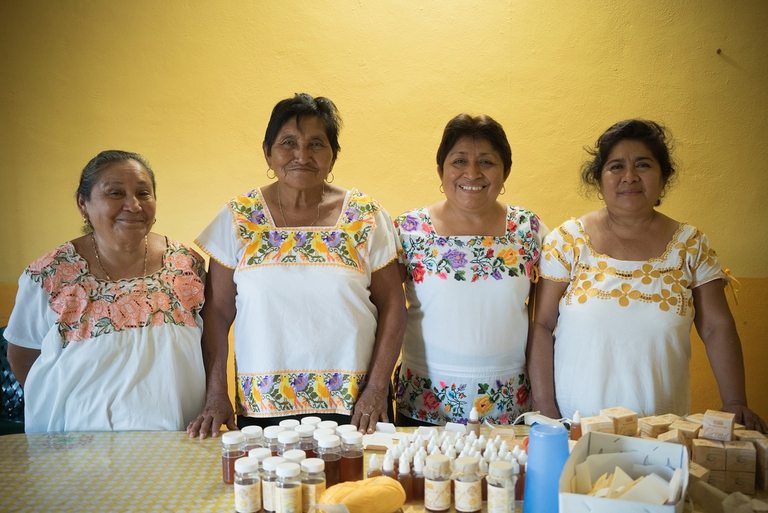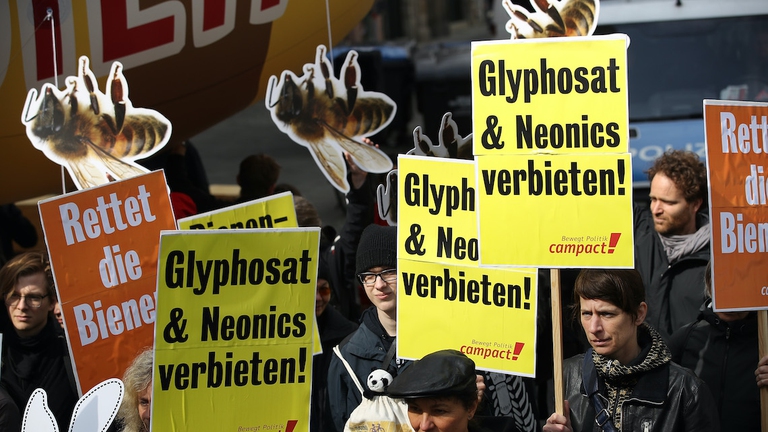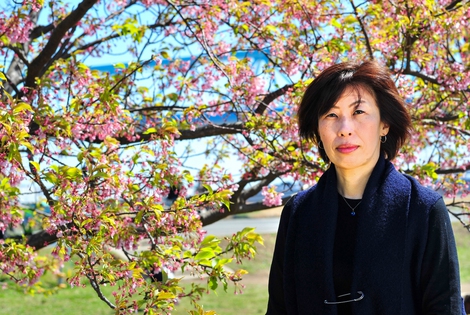
Three people putting the protection of the planet before themselves. Three powerful stories from Latin America, the deadliest region for environmental activists.
Leydy Pech, winner of the 2020 Goldman Environmental Prize for North America, is the beekeeper who defended Mexican Maya land against the agro-industry.
After the winners of the Goldman Environmental Prize 2020, the so-called “Nobel Prize for the environment”, were announced, the international press was let on to the extraordinary story of Leydy Pech, a Mayan beekeeper who crossed paths with the agrochemical giant par excellence, Monsanto. And in the end, prevailed.
For Mayan communities in the Mexican state of Campeche beekeeping is a millennial tradition and a strong part of their identity. The production of honey and beeswax from the Melipona bee (Xunan Kav in the local language) supports about 25,000 families, making Mexico the sixth largest honey producer in the world. In this economic system, the interests of local communities are aligned with those of sustainable agricultural practices: the area’s richness in highly biodiverse tropical forests, in fact, creates favourable conditions for the bees.
Leydy Pech, 55, born and raised in Hopelchén, is one of the many indigenous Maya committed to beekeeping day in day out. She is part of the Koolel Kab / Muuch Kambal coalition, founded in 1995 and winner of the 2014 Equator Prize awarded by the United Nations Development Programme (UNDP): a predominantly female-led organisation that protects Mayan lands and natural resources from the threats of deforestation and pesticide use.
The survival of these delicate ecosystems is jeopardised by intensive agriculture, which has caused a surge in the rate of deforestation in recent years. In Campeche alone, 380 square kilometres of forest have already been destroyed.
Mexico is a prominent market for Monsanto – acquired by the pharmaceutical company Bayer in 2018 – which introduced the first genetically modified soybean crops together with herbicides in 2000. The active ingredient sprayed on crops is glyphosate, widely adopted all over the world starting from the 1970s and which is at the centre of numerous scientific studies that highlight its potential risks for human health.
After over ten years of trials, in 2012 the Mexican government gave way to GM soybean crops being adopted in seven states, including Campeche and Yucatán; omitting, however, to consult indigenous communities, therefore to fulfil its obligations under the country’s Constitution and the International Labour Organisation (ILO)’s Convention 169.
This is where Pech came into play, bringing together beekeepers, environmentalists and NGOs under the umbrella of the Sin Transgénicos (“GMO-free”) coalition and taking legal action against the government. In the meantime, she made contact with the National Autonomous University of Mexico, whose study backed up claims that local honey had been contaminated by GM soy. Working in collaboration with the UNDP, researchers even found traces of glyphosate in Hopelchén residents’ drinking water as well as urine. Data at hand, Pech responded by organising a series of workshops, meetings, petitions and demonstrations involving the local population.
In November 2015, the Mexican Supreme Court reached a unanimous verdict: the government unlawfully proceeded in authorising the cultivation of GMOs without having first consulted indigenous communities. In September 2017, the country’s food and agriculture authorities revoked Monsanto’s permits.
Pech’s determination has now been recognised and is being celebrated in the eyes of the world. “Today is a historic day for the Maya people,” she stated upon receiving the Goldman Environmental Prize. “The award gives me the opportunity to tell the world that the territories of indigenous peoples are being dispossessed by extractive mega-projects, agro-industry, tourism and others that strengthen a capitalist model that affects natural resources and our way of life. I call on all governments and world leaders to rethink more comprehensive development models that respect and recognise human rights, autonomy, self-determination of indigenous peoples and ancestral heritage”.
Siamo anche su WhatsApp. Segui il canale ufficiale LifeGate per restare aggiornata, aggiornato sulle ultime notizie e sulle nostre attività.
![]()
Quest'opera è distribuita con Licenza Creative Commons Attribuzione - Non commerciale - Non opere derivate 4.0 Internazionale.
Three people putting the protection of the planet before themselves. Three powerful stories from Latin America, the deadliest region for environmental activists.
Influential scientist, activist and author Vandana Shiva fights to protect biological and cultural diversity, and against GMOs.
Kimiko Hirata has blocked 13 new coal plants in Japan, but she hasn’t done it alone. The 2021 Goldman Prize winner tells us about her movement.
The Goldman Environmental Prize, the “green Nobel Prize”, is awarded annually to extraordinary activists fighting for the well-being of the planet.
We talk to Shaama Sandooyea, activist and marine biologist from Mauritius onboard Greenpeace’s Arctic Sunrise ship in the heart of the Indian Ocean.
Arrested for supporting farmers. The alarming detention of Disha Ravi, a 22-year-old Indian activist at the fore of the Fridays for Future movement.
Water defender Eugene Simonov’s mission is to protect rivers and their biodiversity along the borders of Russia, China and Mongolia.
Chibeze Ezekiel, winner of the 2020 Goldman Environmental Prize for Africa, is fighting to guide new generations towards a renewable future.
Paul Sein Twa, winner of the 2020 Goldman Environmental Prize for Asia, has spent a lifetime defending Karen culture in Myanmar and its synergy with nature.









